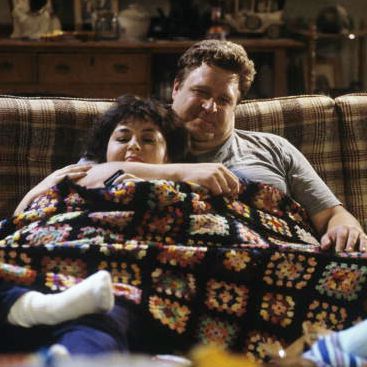
It is a stressful time to be a parent. Amidst an explosion of oft-conflicting advice on how to help your kids flourish — or at least not screw them up too badly — parents could be excused for getting a bit freaked out. Which advice should you follow? Who is a genuine “expert” when it comes to the sometimes-science, sometimes-art of raising kids?
Maybe that’s why the notion of a “good-enough parent” seems so refreshing at the moment. In a Psychology Today post published today, the Boston College psychologist Dr. Peter Gray lays out this concept, which is adapted from the child psychologist Bruno Bettelheim’s 1987 book entitled, well, A Good Enough Parent.
The basic idea is: Chill out a little bit. Understand that along the way, things are going to go wrong and your child is going to struggle here and there, but that these struggles aren’t the end of the world.
The whole post is worth reading, but this paragraph sums things up nicely:
Good enough parents do not worry too much about their imperfections. They strive to do the things listed below, but they recognize that they will not always succeed as fully as they might wish, and they forgive themselves for that. Good enough parents recognize that even love is never perfect; it is always at least somewhat fickle. In Bettelheim’s words, “There are few loves which are entirely free of ambivalence. … Not only is our love for our children sometimes tinged with annoyance, discouragement, and disappointment, the same is true for the love our children feel for us.” Good enough parents accept this as part of the human condition. Good enough parents understand that nature has created children to be quite resilient. We would not have survived as a species if that were not true. As long as parents don’t mess up too badly (and sometimes even if they do), the children will turn out OK, and OK is good enough.
There’s a striking contrast between this idea and some recent trends in parenting advice. Take the pediatrician Dr. Laura Jana’s 2014 TEDx tTalk called “5 Connections That Will Change Children’s Lives” in 2014. In it, she argues that “perhaps what we need is … a ‘start-up of your baby’ approach.”
She continues:
While [many people] in the worlds of business, leadership, and innovation are actively identifying the 21st-century tool kit of skills that we need to succeed, those of us in the business of raising children to be ready-for-life adults are the ones responsible for assembling this very same tool kit — we just work further upstream, and in some case much further, as in as young as ages zero to 5.
Jana’s basic idea is that in order to raise a kid ready for the challenges of the 21st-century economy, it’s vital to be cognizant of exactly which skills need developing, as well as the limited window available for inculcating those skills. The phrase “from the playroom to the boardroom” comes up a lot when you Google around about Jana and her work.
I’m not meaning to pick on her, and in fact some of her suggestions, while dressed gaudily in MBA-speak, come down to common-sense stuff like encouraging kids to be creative and providing quality preschool to disadvantaged kids. But still: She has a book based on her talk coming out next year, so there’s clearly an appetite for this sort of competitive, business-tinged framing of child-rearing.
Think about the pressure inherent to this view of parenthood. Raising your kid is presented as similar to running a start-up — an insanely competitive, intense process with clear conceptions of victory and failure. It’s implied that if your kid doesn’t end up in or near “the boardroom,” you’ve done something wrong. Characteristics like creativity are presented not as ends, but as means to being competitive in some brutal future global labor market.
Do we really want management consultants to come in and streamline parenting, as it were? It’s happening — just check out all the #content out there in which CEO-types are treated as inherently credible sources for parenting advice. Hopefully some of the parents who find this material compelling — and who watched Jana’s talk — will also read Gray’s slightly less anxiety-provoking argument.




